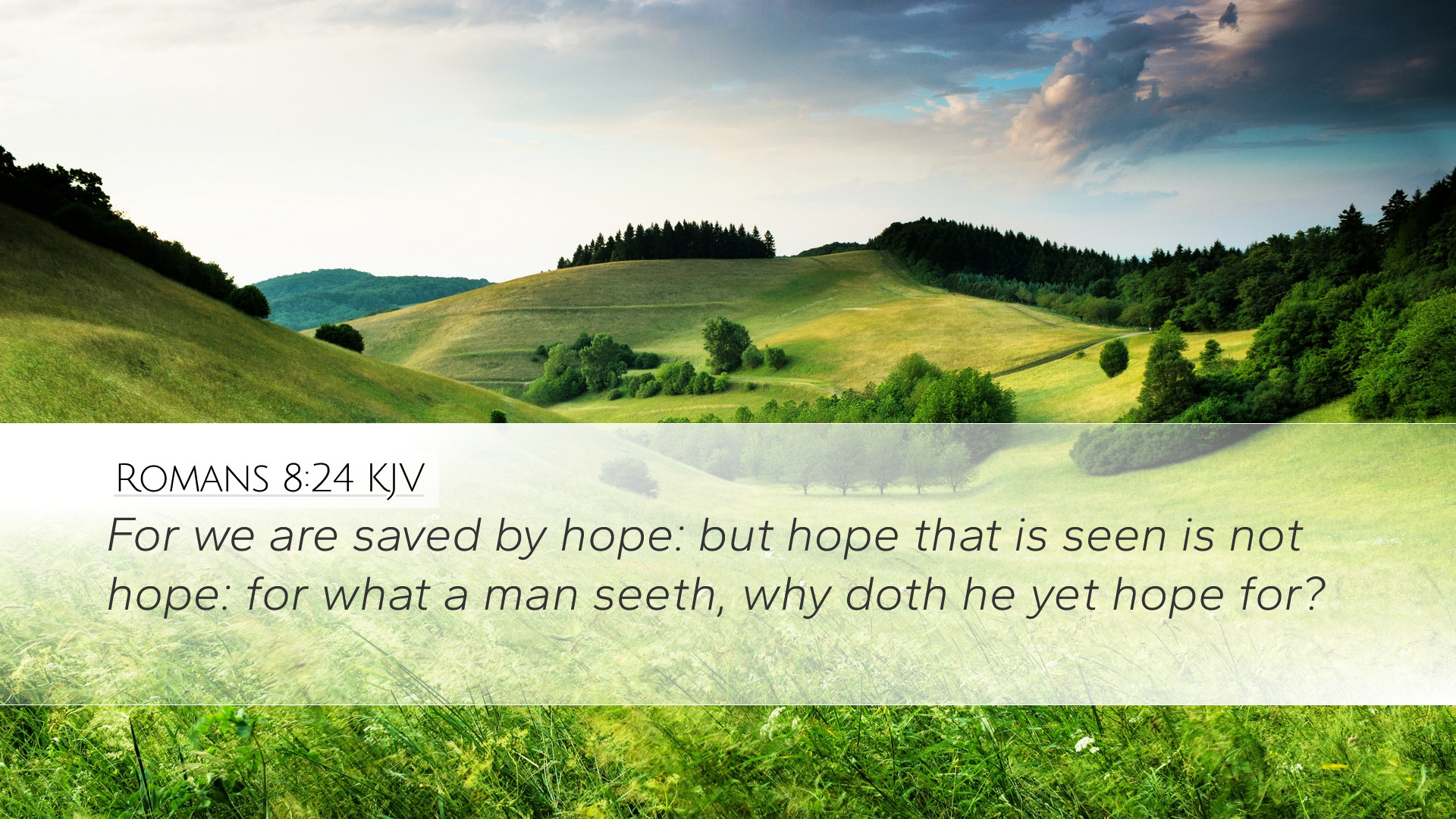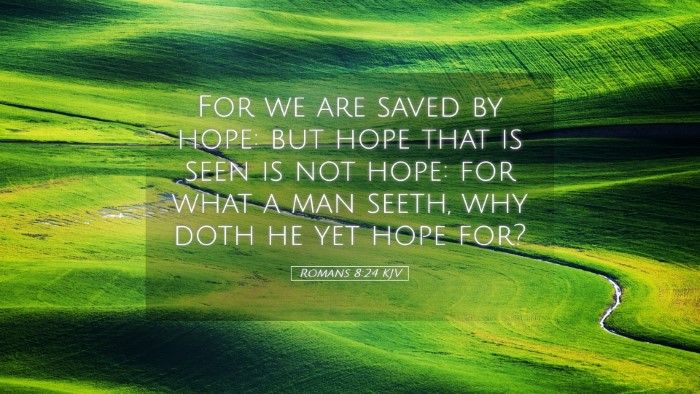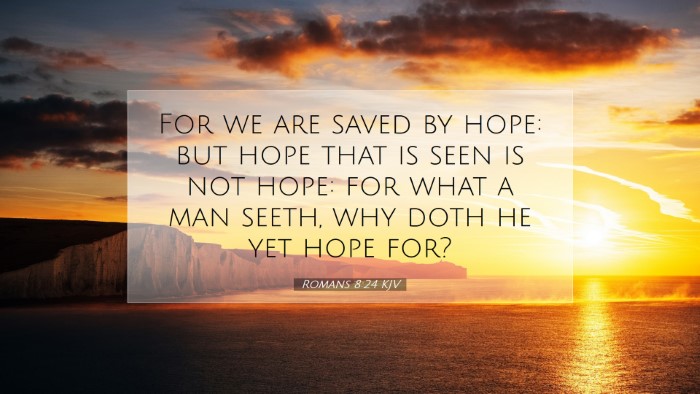Commentary on Romans 8:24
The Apostle Paul, in his epistle to the Romans, encapsulates a profound theological assertion in Romans 8:24: “For we are saved by hope: but hope that is seen is not hope: for what a man seeth, why doth he yet hope for?” This verse serves as a cornerstone in understanding the essence of Christian hope and salvation.
1. The Nature of Hope
In his exposition, Matthew Henry emphasizes that hope is integral to the believer's experience. He notes that hope is not merely an expectation of future good, but it represents a deep-seated confidence in God’s promises. This hope is essential in the life of faith, as it is tethered to the assurance of salvation that believers possess through Christ.
Albert Barnes further elaborates that the hope mentioned in this verse is dynamic and active. It is a hope rooted in the faith of things unseen, which enables the believer to persevere through trials and tribulations. Barnes highlights that this hope is a crucial aspect of salvation; it is a hope yet to be fully realized, which fuels the believer's endurance and forward-looking attitude.
2. Salvation and Its Dimensions
Adam Clarke contributes to this discourse by elucidating the different aspects of salvation. He notes that salvation is a multifaceted process comprising justification, sanctification, and glorification. The hope signifies not just a future inheritance but an ongoing transformation that begins in the present life. Clarke reminds readers that the Christian experience of salvation includes an initial phase of being saved, a continual practice of being saved (sanctification), and a future promise of complete salvation (glorification).
3. The Role of Faith
The intersection of hope and faith is crucial in the understanding of this text. Matthew Henry states that hope becomes a guiding force driven by faith. Without faith, hope lacks substance and direction. He asserts that true hope reflects a believer's trust in God’s reliability; it rests on the assurances given in Scripture and the historical acts of redemption through Jesus Christ.
4. Hope That is Seen
Exploring the second part of the verse, which states that "hope that is seen is not hope," Albert Barnes asserts that hope entails an element of longing for what is not yet obtained. He draws attention to the idea that if salvation were fully realized, the necessity for hope would cease. This statement deepens the understanding of what it means to live a life of faith; it involves a conscious anticipation for what is yet to come.
Adam Clarke reinforces this by illustrating that the visible fulfillment of hope would render it superfluous. In essence, the nature of hope is intertwined with waiting and longing for the completion of God’s promises. This waiting period is not passive; rather, it is characterized by active faith and perseverance as believers navigate the complexities of life.
5. Practical Application for Believers
The implications of Romans 8:24 are profoundly practical for modern believers. Matthew Henry encourages Christians to cultivate this hope, to gird themselves with the expectation of God’s future grace while actively participating in the present. This hope is not a naive optimism but a steadfast confidence rooted in the promises of God.
For pastors and leaders, this verse serves as a reminder to preach the importance of hope to their congregations. Albert Barnes suggests that congregants should be taught to understand their suffering in light of hope. Preaching should center around cultivating a resilient faith that looks forward to inevitable future joys and triumphs in God’s kingdom.
6. Conclusion
Romans 8:24 poignantly reflects the journey of the believer—a journey marked by the tension between the 'already' and the 'not yet' of salvation. Through the collective insights of Matthew Henry, Albert Barnes, and Adam Clarke, it is evident that hope is indispensable in the Christian walk. It is a hope that not only assures the believer of salvation but also compels them to labor diligently as they await full redemption.
In conclusion, while hope may remain unseen, it is through this lens of hope that believers are encouraged to live in faith, fostering a community that anticipates God’s ultimate fulfillment of His promises.


